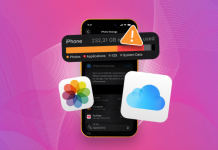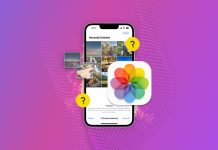 It took Apple two years to sell 1 million iPods. In 74 days, Apple sold 1 million original iPhones, back in 2007. It took the company just 28 days to sell 1 million iPads. Just last week, Samsung announced they were over halfway there, selling 600,000 Galaxy Tabs in a month. The race to a million units sold has proven to be a pretty interesting indicator of a product’s success.
It took Apple two years to sell 1 million iPods. In 74 days, Apple sold 1 million original iPhones, back in 2007. It took the company just 28 days to sell 1 million iPads. Just last week, Samsung announced they were over halfway there, selling 600,000 Galaxy Tabs in a month. The race to a million units sold has proven to be a pretty interesting indicator of a product’s success.
Microsoft’s new smartphone platform hasn’t been so lucky. While Microsoft hasn’t announced sales figures, rumors have it that the company has sold 100,000 devices in the month or so they have been available. With five handsets in the US (three on AT&T, two on T-Mobile; Verizon coming “soon”) and several handsets in Europe, Microsoft’s new devices are available to a lot of customers.
That isn’t exactly a rocketing start. True, the platform isn’t on Verizon or Sprint yet. True, there are rumors of a “massive” WP7 software update coming as soon as January.
When the iPhone was launched, RIM, Microsoft and Palm were the dominant players in the smartphone market. Today, many more consumers carry smartphones, and Apple and Google are leading the way not only in growth, but also in innovation. Many people believe Microsoft has missed the boat here by shipping a new mobile OS too late. As Reuters reported yesterday, many smartphone owners are proving to be quite loyal to their platforms — bad news for Microsoft, who had hoped to woo away Android and iOS customers.
As Apple Insider points out, Microsoft’s platform is also having some issues internally, with app developers and delayed payments as well as a lack of stat reporting on app downloads and usage.
Windows Phone 7 lacks many of the features that the original iPhone OS also lacked. Copy and paste and multi-taking are absent. While consumers didn’t seem to mind too much in 2007 about these features, in 2010, they do. Without these features — no matter how “soon” they may be coming — WP7 devices don’t appear as “smart” as their Apple or Android counterparts. Unlike the original iPhone OS, Windows Phone 7 already has an App Store and a music-purchasing eco-system built-in, as well cloud-powered sync for contacts and calendars. In short, Windows Phone 7 is far ahead of where the iPhone was when it launched, but behind the current iPhone and Android alternatives.
It’s a shame to see Windows Phone 7 struggling in the marketplace. I think WP7 offers a really great alternative to the iPhone and Android devices. Its interface is new and edgy — unlike iOS, Android and WebOS that have extended the desktop metaphor to the smartphone in many ways. It feels less dated than iOS and is less frustrating to use than Android can be. Unlike Android, Microsoft has learned lessons from the platform’s fragmentation, and is controlling not only their partners’ hardware, but also what carriers can do with software updates and third-party apps.
WP7 represents fresh thinking — something Microsoft isn’t very good at, frankly. WP7 is a clean break from previous versions of Windows Mobile. While it has had a rough start, I think it will do well in the future, once Microsoft fixes issues with developers and adds some commonplace features. I think consumers are ready for a decent third choice when it comes to smartphones, and I think Windows Phone 7 can be that choice.
Article Via Apple Insider






